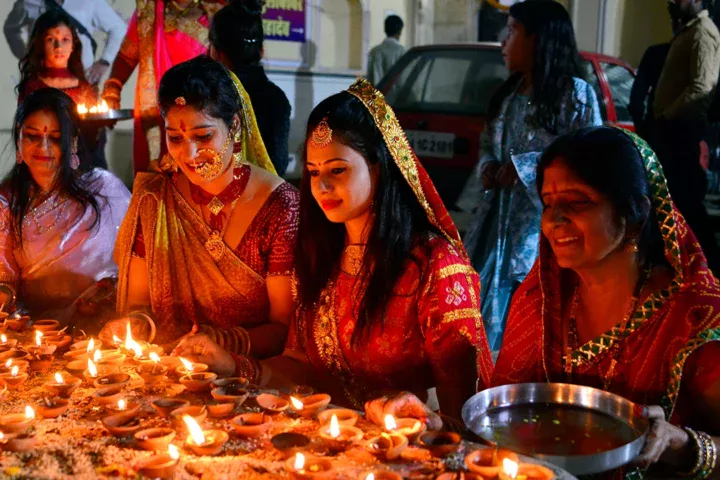The world’s primary religions fall into two categories: Abrahamic religions, such as Christianity, Judaism, and Islam; and Indian religions, which include Hinduism, Buddhism, Sikhism, and others. Of the world’s major religions, Christianity is the largest, with more than two billion followers.
Christianity is based on the life and teachings of Jesus Christ and is approximately 2,000 years old. Its largest groups are the Roman Catholic Church, the Eastern Orthodox churches, and the Protestant churches, and its sacred text is the Bible. Over the centuries, Christianity grew in numbers as it spread around the world, often through missionaries and colonizers.
The second most widely practiced religion is Islam, with an estimated 1.8 billion followers worldwide. It started in Mecca (a city in modern-day Saudi Arabia) in the 7th century CE and was spread by the Prophet Muhammad (570–632 CE), who followers of Islam believe to be God’s ultimate prophet. Islam states that the teachings of God, who is known as Allah, were written down in a holy book known as the Qurʾān, which is the faith’s spiritual text. Most Muslims belong to one of the two major branches of Islam: Sunnis include approximately 80 percent of Muslims, and the Shiʿah includes approximately 15 percent. The remaining numbers belong to smaller denominations.
Hinduism, with an estimated 1.1 billion followers, is the world’s third largest religion and also one of the oldest, with beliefs and practices that date back at least as far as the 1500s BCE. Hinduism is practiced primarily in India (where approximately 80 percent of the population identifies as Hindu), Nepal, and Indonesia. Little is known about the founding of Hinduism, but its teachings deeply influence almost all aspects of believers’ lives. In recent years certain aspects of Hinduism have become popular in the West, such as the practice of yoga, as well as the use of chakras (energy points found throughout the body) to identify and treat illness.

The fourth most widely practiced religion is Buddhism, with approximately 500 million followers worldwide and more than 250 million in China alone. Based on the teachings of Gautama Buddha, the religion was founded in India nearly 2,500 years ago. There are two main branches of Buddhism: Theravada Buddhism and Mahayana Buddhism. Tenets of Buddhism include a vow of nonviolence and an adherence to ethical behavior in all aspects of life.
The next most widely practiced religions, based on number of followers, are:
- Shintō (104 million followers). Formally established in Japan in the 8th century CE, Shintō promotes the existence of many gods. It is not an organized religion in the traditional sense, but it serves as the foundation of many cultural practices in Japan.
- Sikhism (25 million followers). Relatively new compared with many other faiths, Sikhism was founded in India in the 1500s CE and is based on the teachings of Guru Nanak and his nine successors.
- Judaism (14 million followers). This monotheistic religion was established in the Middle East about the 8th century BCE and today comprises three primary branches: Orthodox Judaism, Conservative Judaism, and Reform Judaism. Though based on a common belief system, the branches differ in their interpretation of Scripture and certain religious practices.
- Daoism (12 million followers). Originating in China more than 2,000 years ago, Daoism (also known as Taoism)centers on living in harmony with the spontaneous fluctuations of the natural order. Among its first philosophers was a man named Laozi, who is believed to have written the faith’s primary text, the Daodejing.
- Muism (10 million followers). One of the world’s oldest religions, this faith is closely associated with traditional Korean culture and history and is also known as Korean Shamanism. Muism’s followers claim a strong belief in the spirit world.
- Cao Dai (4.4 million followers). Originating in Vietnam in 1926, Cao Dai was established by Ngo Van Chieu, who claimed to have received a message from a god figure known as the Supreme Being during a séance. The religion incorporates elements of many other faiths, including Christianity, Judaism, and Daoism, and promotes love, peace, and tolerance.


















